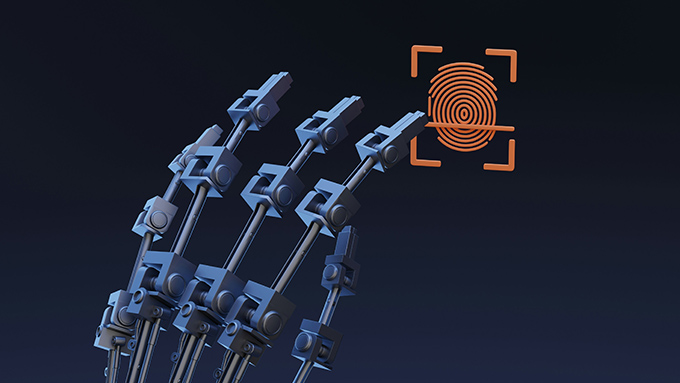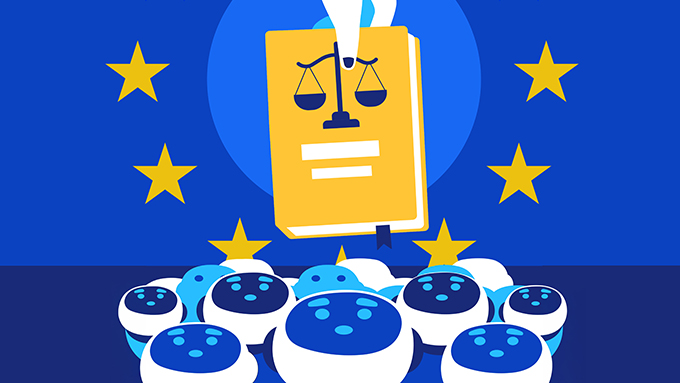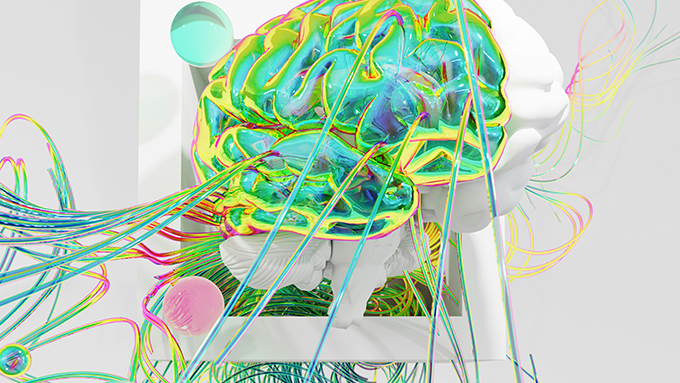Constitutional Court's Annulment Decision on Certain Provisions of the Internet Law No. 5651
Introduction
With its decision dated 11.10.2023 and numbered 2020/76 E., 2023/172 K. published in the Official Gazette dated 10 January 2024 and numbered 32425 ("Decision"), the Constitutional Court ("Constitutional Court") evaluated the requests for the annulment of certain articles of the Law No. 7253 on the Amendment of the Law on the Regulation of Publications on the Internet and Combating Crimes Committed through These Publications. In this context, the Constitutional Court annulled part of Art. 8 (Removal of content and fulfillment of access blocking decisions) and all of Art. 9 (Removal of content and access blocking) of the Law on Regulating of Publications on the Internet and Combating Crimes Committed through These Publications No. 5651 ("Internet Law"). The decision enters into force on November 10, 2024.
Annulment Decision on Article 8
Article 8/4 of the Internet Law stipulates that the President of the Information and Communication Technologies Authority ("President") may make an ex officio decision to block access to and remove content in relation to publications that constitute the offenses regulated under Article 8/1. The offenses regulated under Article 8/1 of the Internet Law are as follows:
- offences set forth in the Turkish Penal Code No. 5237, namely, the offences of incitement to suicide (Art. 84), sexual abuse of children (Art. 103/1), facilitation of the use of drugs or stimulants (Art. 190), supply of substances dangerous for health (Art. 194), obscenity (Art. 226), prostitution (Art. 227), and providing a place and opportunity for gambling (Art. 228),
- offences set forth under the Law No. 5816 on Offences Committed Against Atatürk,
- offences set forth under the Law No. 7258 on the Organization of Betting and Games of Chance in Football and Other Sports Competitions,
- offences set forth under Articles 27/1 and 27/2 of the Law No. 2937 on State Intelligence Services and National Intelligence Organization.
Article 8/11 of the Internet Law stipulates that the President may impose an administrative fine on the relevant content, hosting and access provider in the event that the decision to remove content and/or block access to the content is not fulfilled. The request for annulment of these provisions is mainly based on the grounds that (i) the rules expand the liability of hosting providers and access providers arising from the content, (ii) the removal of unlawful content should only be requested from content providers, whereas the rules impose an obligation on hosting providers, and (iii) the administrative decision to remove the content or block access will be implemented in a short time, but it will take a long time to reveal that this decision is legally erroneous.
In this context, the Constitutional Court firstly recalls that the right to claim, defense and fair trial is guaranteed by Article 36 of the Constitution of the Republic of Turkey ("Constitution") and Article 6 of the European Convention on Human Rights ("ECHR") and the presumption of innocence is guaranteed by Article 38/4 of the Constitution and Article 7 of the ECHR. As the Constitutional Court stated in the Judgment, "in accordance with the presumption of innocence, a person can be characterized as guilty and sanctions under criminal law can be imposed on him/her only if he/she has been convicted by a final judgment". In other words, a person cannot be treated as guilty until the criminal proceedings against him/her are concluded and a verdict is rendered. The Decision also states that the guarantee provided by the presumption of innocence does not only cover the court conducting the criminal proceedings, but also the actions and decisions of all other administrative and judicial authorities. In its assessment of the rules subject to the annulment request, the Constitutional Court firstly mentions that to order the removal of content under these rules, it is not necessary to initiate a judicial process against the person, nor is it required that the person has been convicted by a criminal court. As a matter of fact, it is sufficient for the President to determine that the offenses stipulated in Article 8/1 of the Internet Law have been committed to order the removal of the content under the provisions sought to be annulled. Therefore, the Constitutional Court states that the measure envisaged in the rule is a final measure that is detached from the criminal proceedings and is applied depending on the determination of a crime by the President, that the administrative measure applied by the President is not examined in the criminal investigation process regarding the crime that caused the application of the measure and that the decision to remove the content remains in force even if the trial results in a verdict other than a conviction. As a result of all these evaluations, the Constitutional Court cancelled the relevant sections of Article 8 of the Internet Law on the grounds that the decision to remove the content, which is in the nature of a final measure depending on the determination of guilt by an administrative authority without a final court decision determining the crime has been committed, and the imposition of administrative fines in case of non-execution of this decision violate the presumption of innocence.
Annulment Decision on Article 9
The Constitutional Court also examined various statements in Article 9 of the Internet Law, which sets forth the procedures and principles regarding the blocking of access to internet publications that violate personal rights and the removal of the content of these publications. Pursuant to Article 9 of the Internet Law, those who claim that their personal rights have been violated due to the content of publications on the internet may apply to the content provider and, if they cannot reach the content provider, to the hosting provider and request the removal of the content through the warning method, or they may directly apply to the criminal judge of peace and request the removal of the content and/or blocking of access. In line with the requests of those whose personal rights are violated due to the broadcast content on the internet, the judge may decide to remove the content and/or block access within the scope specified in Article 9 of the Internet Law, and this decision is sent directly to the Association of Access Providers ("Association"). The content removal and/or access blocking decision sent by the Association to the relevant content, hosting and access providers shall be immediately executed by the relevant content, hosting and access providers within four hours at the latest. In the event that the publication regarding the violation of the personal right subject to the decision of the judge to remove the content and/or block access is also published on other websites, the current decision shall also be applied for these websites if the person concerned applies to the Association. The grounds for the request for annulment of these rules are; (i) the legal nature of the decision to remove the content or block access is unclear, (ii) it is not possible to accept these decisions as protection measures, (iii) although there is no crime or criminal investigation, upon the request of those who claim that their rights have been violated, such decisions are made by the civil courts of peace, which do not have administrative law enforcement authority, (iv) these methods are contrary to the legal system, (v) there is no certainty in the rules, (vi) it is not clear which fundamental rights are to be protected by the rules as opposed to the regulations aimed at protecting the right to privacy, (vii) the rules do not contain sufficient safeguards against arbitrary interference, (viii) the rules limit freedom of expression and freedom of press disproportionately, (ix) the rules lead to a kind of censorship mechanism, and (x) the judicial fine foreseen for failure to comply with the decisions of the criminal judgeship of peace is contrary to the legality principle of crimes and punishments.
According to the Constitutional Court, the rules subject to the lawsuit restrict freedom of expression by permitting the removal of online publications' content and/or preventing access to them. They also restrict press freedom if the publication falls under the purview of online journalism. Pursuant to Article 13 of the Constitution, such a restriction must comply with the reasons for restriction set forth in the Constitution, the requirements of the democratic social order and the principle of proportionality. The Decision refers to the decision of the Constitutional Court dated 27.10.2021 and numbered 2018/14884 on Keskin Kalem Yayıncılık ve Ticaret A.Ş., in which the Constitutional Court evaluated the interventions based on Article 9 of the Internet Law in line with the principle of legality, especially in the context of Article 13 of the Constitution. The referenced decision discusses whether the said article satisfies the requirements of legal security and certainty, even if it is clearly accessible and a law in terms of form. By mentioning the decision, the Constitutional Court emphasizes that, in terms of the application of Article 9 of the Internet Law, it is understood that the criminal judgeships of peace reached their conclusions without conducting a conflicting trial, without demonstrating the need for swift disposal and taking instant action, and that no approach was identified to ensure fair supervision between conflicting rights. The Constitutional Court also states that the lack of specificity in the scope and limits of Article 9 of the Internet Law creates a wide discretion for the judicial authorities, that it is difficult, if not impossible, to obtain results from the appeals against the decisions rendered under Article 9 of the Internet Law when all concrete cases regarding the applications made to the Constitutional Court are examined, that it does not provide a gradual intervention method for the restriction of internet content against attacks on personal rights, and that the restrictions imposed are indefinite restrictions on access to certain content on the internet. The Constitutional Court ruled that Article 9 of the Internet Law violates Articles 13, 26, and 28 of the Constitution and annulled Article 9 of the Internet Law, stating that this aspect of the rules severely violated the freedom of expression and the freedom of the press, that it did not contain procedural safeguards to prevent arbitrary behavior by narrowing the discretionary power of public authorities, as well as safeguards to ensure proportionate decision-making in accordance with the requirements of the democratic social order.
Conclusion
In conclusion, the Constitutional Court, through its Decision nullified parts of Article 8 and entirely annulled Article 9 of the Internet Law by concluding that Article 8, which allows the President to block access and remove content related to certain offenses without a final court judgment, violates the presumption of innocence; and that Article 9, which regulates access blocking and content removal based on violations of personal rights, lacked specificity, leading to arbitrary decisions and disproportionate restrictions on freedom of expression and the press.
All rights of this article are reserved. This article may not be used, reproduced, copied, published, distributed, or otherwise disseminated without quotation or Erdem & Erdem Law Firm's written consent. Any content created without citing the resource or Erdem & Erdem Law Firm’s written consent is regularly tracked, and legal action will be taken in case of violation.







